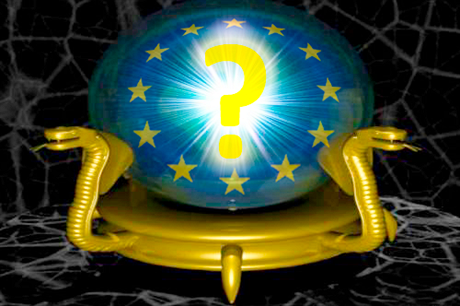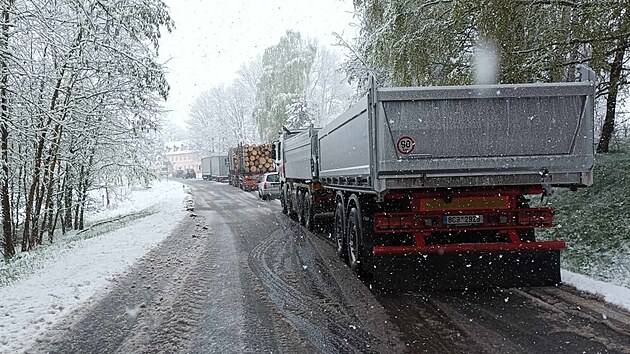In recent weeks and months there has been a deluge of articles speculating about the possible scenarios for the escalation of the current crisis and their impact on states, companies and citizens. The common trait of all these forecasts is that they are based on unknown circumstances such as the breakup of the eurozone, demise of the euro and bankruptcy of EU-member states.
One of the main attributes of most forecasts and accompanying discussions taking place online is the utter confusion within the forecasts about what could eventually happen and the probable sequence of events which would have a marked impact on the everyday life of ordinary people.
Nobody has practical experience of the situation in which Europe, and consequently the whole globalized world, is now in. It is of course possible to compare the current situation with Argentina and Russia in 1998, or the US in 2008, but the outcomes predicted have about as much value as a glance into a crystal ball.
Governments, corporations and banks have been commissioning analysts to produce ever newer scenarios of further developments upon which they are drawing up their own proposals for measures to implement. These forecasts are typically labeled as confidential and as a consequence they often appear in the media the following day.
Relative consensus on three issues
Banks will attempt to ensure liquidity by withdrawing credit from prosperous firms and in doing so will drag down the hitherto healthy part of the economy. This will ultimately be to the detriment of the banks themselves.
The chain reaction of steep economic decline could be triggered by the collapse of a group of banks due to devaluation of assets in their portfolios. The major shareholders of such banks won’t have the will, let alone means, to provide fresh capital while sovereign states and international institutions won’t have the resources to shore up failing banks.
States could be unable to meet their obligations and consequently face insolvency because no one will want to buy their debt.
The gravity of these possible circumstances would be exasperated if they occur concurrently. Several times in living memory we have been through financial crisis which always trickle down to the non-financial sector, the last being in 2008, but from the point of view of the current situation, the repercussions thereof have been relatively soft. Governments quickly provided generous amounts of cash to shore up the banks and the economies of developed countries contracted only by several percentage points – no great tragedy in the grander scheme of things.
Now, however, there is one fundamental difference: in 2008 most EU member states didn’t have problems putting up several hundred billion euros to bail out the banks, but now the situation is quite different as demonstrated by the difficulties in topping up international rescue funds.
Most analysts now drawing up possible scenarios of a potential looming crisis are basing their forecasts on economic retraction of between 5 and 15 percent and a consequential rise in unemployment of up to double current levels. To this they then add the consequential extra demands on state budgets, possible lowering of social security benefits and tax rises - certainly not a pleasant prospect, but also no Armageddon.
The Euro-Atlantic region has long been locked together by globalization, but the potential developments in Russia, Asia and especially China are extremely difficult to predict. If that region manages to avoid crisis, it is possible they will serve to pull the West back up after it experiences a moderate decline. But if the East is hit by crisis, all the current forecasts could be considered as wildly speculative shots in the dark.
Nevertheless, if we let our imagination loose, 2012 could play out roughly as follows. Of course the scenario hereunder is speculative and it is not our intention to cause alarm.
January
- Just prior to another unpredictable summit of EU leaders, a detailed plan for Germany’s withdrawal from the currency union is leaked to the press. Following a series of sharp exchanges and mutual accusations the EU leaders depart not having resolved anything.
February
- Greece fails to pay its debt obligations because several auctions of state bonds end in fiasco. The Greek government declares a state of emergency and its inability to pay its domestic and foreign obligation. Fuel and energy shortages ensue and the state fails to pay pensions and public sector salaries on time.
- During an auction of Italian state bonds interest yields rise above 10 percent. The current caretaker government announces its resignation but because of failure to form another government it continues in power.
March
- A meeting of the European Commission ends prematurely after several commissioners walk out of negotiations.
- The US dollar reaches parity with the euro and continues to rise.
- The eurozone bailout fund runs dry but no one is willing to put in fresh capital
- The ratings of all EU member states are downgraded. At the same time ratings of key banks fall after they announce their failure to raise more capital as a result of revaluation of their toxic assets which puts their losses for 2012 at hundreds of billions of euros.
April
- The Czech government, Ministry of Finance and the Czech National Bank (ČNB) announce a revision of the 2012 state budget with higher spending, but do not reveal their fresh forecasts.
- Banks withdraw more liquidity from client companies causing a sharp rise in bankruptcies.
- The Czech Statistical Office (ČSÚ) announces a drop in exports of around 10 percent in Q1 on the previous quarter.
- Unemployment in the Czech Republic reaches the 10 percent level.
May
- Fuel rationing is introduced in Greece and the government announces a freeze of electricity prices as a result of availability being limited to just several hours a day. Debate ensues about the necessity to introduce food rationing. Greece also sees a number of attempts to introduce a parallel currency. Barricades are erected in the streets and the police control public order only in strategic locations of large towns. Widespread looting takes place as do attacks on the owners of luxury properties, cars and yachts, who together with the Germans are blamed for causing the crisis.
- Interest on Portuguese and Spanish bonds rises above 10 percent. For a month already Italy has been unable to raise any finances and announces that its cash reserves will run out before June.
- Škoda Auto reduces production at its key plant in Mladá Boleslav by 25 percent due to a large drop in sales, especially in Germany. Unemployment in the region rises sharply.
June
- The Czech government announces a rise in VAT to 25 percent as of July, a significant rise in property tax beginning in 2013, and 60 percent income tax on all wages above Kč 30,000 a month.
- In Greece shortages of food and medicine cause widespread unrest and the threat of a humanitarian crisis looms.
- A million people gather in Berlin to demand the immediate end to German financial aid to other countries and a lowering of contributions to the EU to 10 percent of 2011 levels.
- The EU introduces an immediate freeze of all payments to all development programs including those already under realization. No date is set for resuming the payments and delays in payments of agricultural subsidies begin.
- Since March only deputy ministers attend EU summits and, except for general promises about preparations of a summit of EU heads of state, don’t produce any results.
July
- People across Europe take holidays and try to forget about the crisis.
- Thanks to seasonal jobs the average unemployment level in the EU stagnates at around 20 percent.
- Little news from Greece because the rest of the Europe is no longer concerned about the country’s fate.
- Key European banks announce negotiations with potential investors from China, Russia, Arab nations and India looking to acquire controlling stakes.
- Production levels of EU states rise by 1 percent in comparison with June to 75 percent of production levels in December 2011.
August
- Stock exchange indexes stabilize with very low volumes of trade. The US Dow Jones Index hovers at around 6,000 points; Germany’s DAX around 2,000 points having lost more than 50 percent of their value since the beginning of the year. Gold is trading at around $ 3,000 an ounce but its price is highly volatile. The price of oil has dropped to around $20 per gallon but there are shortages because extraction is already non-profitable.
- The US dollar is trading at €1.2, while €1 buys Kč 30.
- Thanks to seasonal work unemployment in the Czech Republic has dropped to 25 percent.
September
- Across the world people demonstrate in cities demanding improvement of living standards and call for the banks who caused the crisis to be held to account.
- Stock exchanges around the world again begin to fall sharply.
- The US dollar trades at €1.35
- Due to lack of finances the European Parliament cannot afford to convene and almost 50 percent of employees at EU institutions in Brussels are made redundant.
- With the exception of Germany, Netherlands and Austria, all eurozone members fail to sell state bonds and an announcement by France that it is unable to pay its obligations is expected within days.
- In Greece for two months already only half the amount of pensions is paid and even then the payments are late.
- The European Central Bank conducts frantic negotiations on the option of printing more money, but the negotiations stall.
October
- The majority of large European banks are already under imposed administration. Pay-outs of cash have been drastically limited to €200 a month for firms and individuals.
- All European health insurance institutions announce the suspension of payments to surgeries, hospitals and other medical facilities.
- France announces that it will pay out only one pension installment before the end of the year and that in 2013 the state will only be able to make 10 monthly pension payments.
- The European Commission imposes regulation of prices for food and energy but no member states adhere to the directive. Instead they introduce their own price regulations.
- The United Kingdom announces that it no longer feels bound by EU legislation and that it is considering leaving the union.
- EU institutions in Brussels are half empty and no meetings are held. Belgian railways refuse to sell the EU President a ticket unless he pays in cash on the spot.
November
- Germany reintroduces the mark as the national currency and means of exchange with immediate effect. In agreement with Germany, Austria also introduces the mark.
- Political crisis in the Czech Republic reaches a head with the Social Democrats (ČSSD) along with Public Affairs (VV) and the Communist Party (KSČM) demanding immediate doubling of state pensions and a rise in the minimal wage. These parties demand the measure be financed with a special tax on the rich.
- First legal disputes emerge over contracts concluded in euros because the banks which have survived refuse to accept the currency or hold accounts in euros.
- In the Czech Republic measures are introduced limiting transfer of money out of the country and foreign currency purchases. Czech banks which have hitherto avoided grave problems are now experiencing problems with liquidity.
- Supplies of food, fuel and medicine are running low in the Czech Republic. Traders ignore price controls thus the government introduces rationing of certain items.
- Short-term unemployment in the Czech Republic reaches 40 percent and the state extends the period between payments to public sector employees and pensioners to six weeks.
December
- The Czech government announces compulsory measures whereby all individuals with more than Kč 50,000 on their accounts must put all amounts above the limit towards the recapitalization of domestic banks. In turn the banks are obliged to issue shares against the fresh capital. The measure was eventually approved by all parties at an emergency session of parliament. By Christmas all former eurozone members introduce similar measures.
- Citizens do a run on the banks and spend what savings they have left, providing a boost to both the state coffers and traders.
- The government announces that as of the New Year pensions and public sector salaries will resume at pre-crisis levels and that rationing of food and energy will be lifted. The worst of the crisis is declared over.
Too optimistic?
Under this scenario the prognosis for December is too optimistic, but I admit that I began to be afraid of what I was writing. For the ordinary citizen the chaotic scenario described above raises the simple question: what should I do right now in order to limit as much as possible the impact of such developments upon my family and I?
No one can provide a sure answer to that question. If anyone claims to have a solution and attempts to sell it to you, don’t believe them. Every option involving the transfer or exchange of personal or company assets has one major risk: if the economic situation develops differently to that which you prepare for, you will probably lose more than if you do nothing at all.
Only historical experience can serve as a guide and by this I mean the experience of fascism and socialism. Pretty much the only things which didn’t lose value and with a bit of luck individuals could hide from the clutches of the state was gold and works of art. But even this is poor advice because only a few people understand art and the purchase of small amounts of gold involve large transaction costs.
Therefore probably the only safe advice is to go shopping. In any case I sincerely hope that 2012 will turnout at least somewhat better than the scenario described above.





